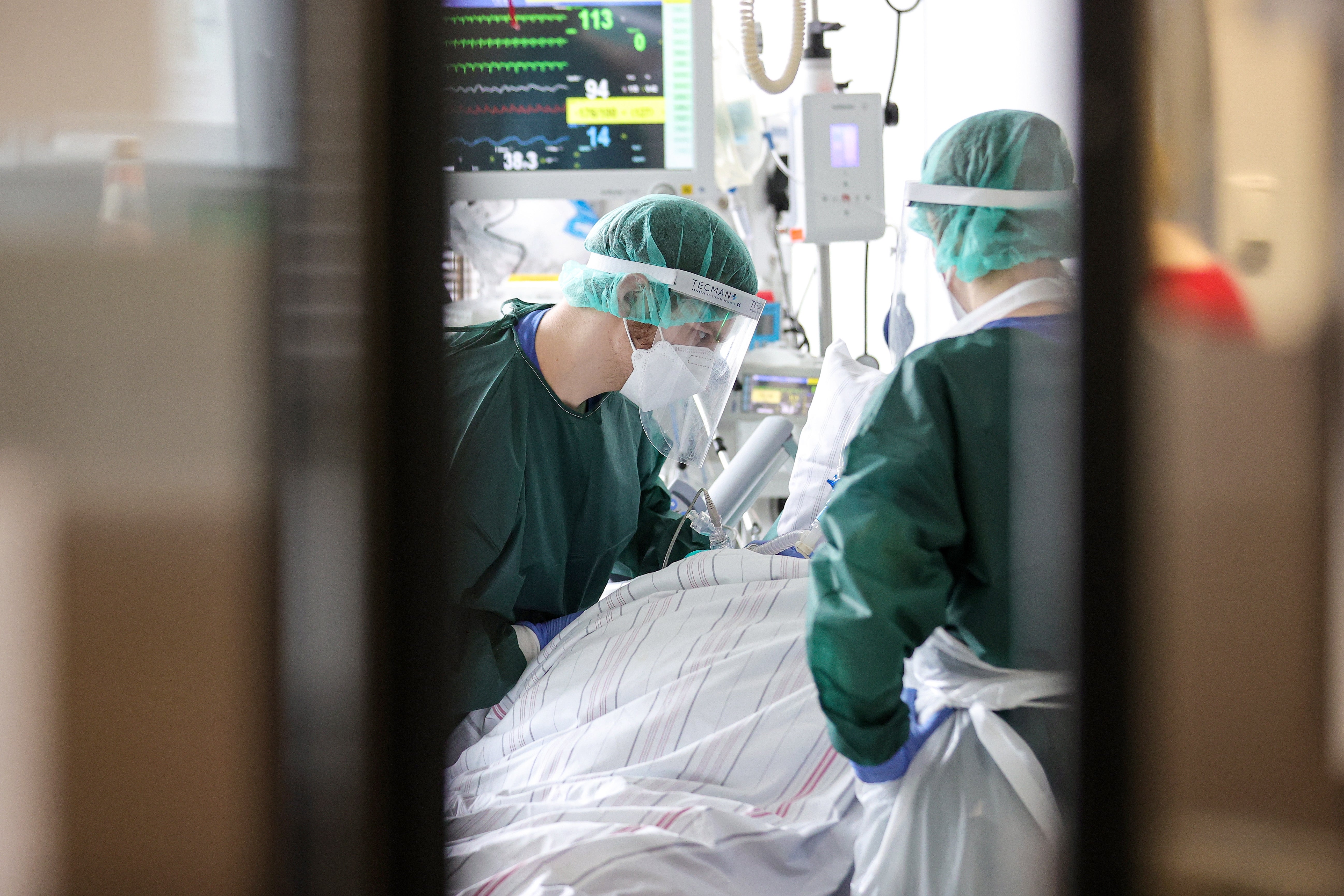Coronavirus: Infections rise across England but hospital admissions falling
Internal NHS figures show numbers of hospital patients have fallen in the past 24 hours

Coronavirus cases have increased across all age groups with the largest rise in young people, new statistics from Public Health England have revealed.
It comes as latest internal NHS data, shared with The Independent, reveals the number of coronavirus patients in hospital across England has fallen in the past 24 hours after a sustained rise during the past week.
Government scientists are watching the data closely for evidence that increasing rates of vaccination sever the link between infections and hospital admissions and deaths.
Across England, there are 779 Covid patients in hospital, down from 801 yesterday. There have been 49 new admissions of patients with Covid in the past 24 hours but 110 patients being discharged.
In Bolton, one of the areas hit hardest by the Delta variant, which was first identified in India, the number of hospital patients has dropped to 39, down from 49 a week ago. Although three new patients have been admitted to the hospital in past 24 hours, eight patients were discharged.
The hospital now has eight patients in intensive care.
At the peak in January, the hospital had 150 Covid patients on its wards.
The latest PHE surveillance report for the week ending 30 May found the number of cases per 100,000 people had increased across all age groups and regions with the biggest increase among younger people.
Cases were highest in in those aged 10 to 19 where rates increased to 72.3 per 100,000 people, up from 55.2 last week.
Those aged 70 and above, who are most at risk from Covid, had the lowest rate at just 5 infections per 100,000 population.
Dr Simon Clarke, associate professor in cellular microbiology at the University of Reading, said: “The latest statistics show that while rates of infection are once again rising in the young, the link to infection rates in more vulnerable older people seems to be broken. This would seem to add to existing evidence that vaccines are working at stopping the spread of Covid-19.
“However, there are still millions of younger adults and children who are unvaccinated. The fact that around half of all outbreaks in England were linked to schools or other education settings shows just how quickly the virus can spread in unvaccinated populations, despite the continued presence of measures to restrict transmission within schools.”
The region with the highest level of infections was the northwest, with 87.4 cases per 100,000 people, up from 52.8 the week before.
The southwest region had the lowest case rate at just 9.4 cases.
PHE said the overall hospital admission rate was just 0.89 per 100,000, up from 0.79 the week before.
The West Midlands region had the highest rate of hospital admissions at 1.33 per 100,000.
Dr Mike Gent, incident director for the Covid-19 response at Public Health England, said: “We are seeing some increases in case rates once again, particularly in younger age groups who are not yet being vaccinated and are having regular testing. This is to be expected as the country opens up and people start to socialise more together.
“But it provides a stark reminder that we must all follow hands, face, space, fresh air and importantly get vaccinated when it’s offered. We will continue to closely monitor the case rates, hospitalisations and deaths over the coming days.”
Join our commenting forum
Join thought-provoking conversations, follow other Independent readers and see their replies
Comments
Bookmark popover
Removed from bookmarks